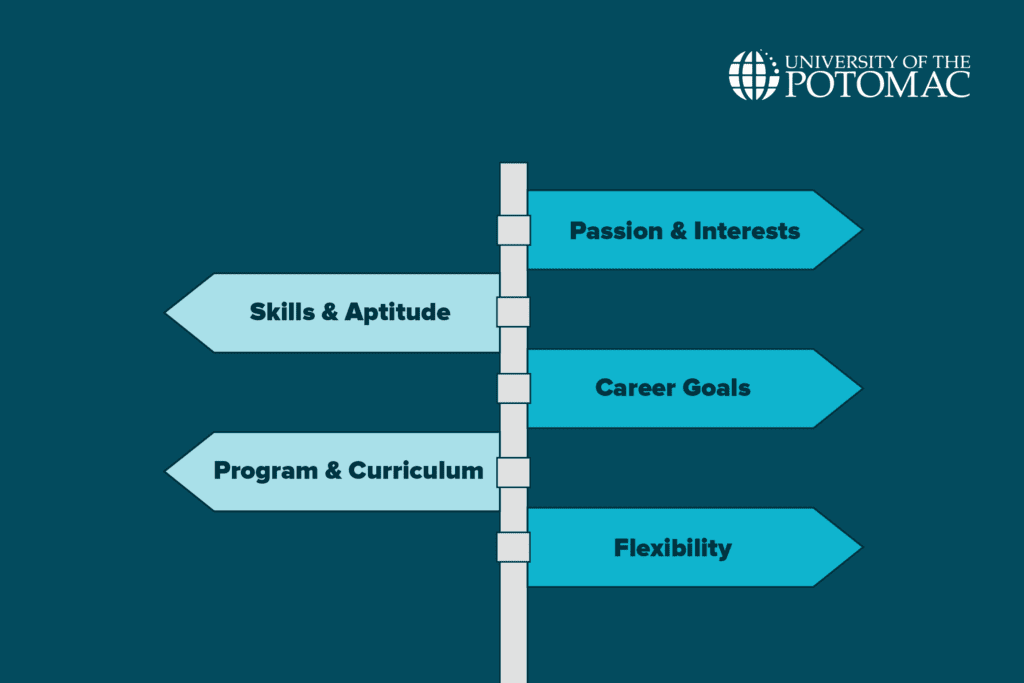Are you curious to learn about STEM majors? Then you’ve come to the right place. STEM stands for Science, Technology, Engineering, and Mathematics and represents a diverse and dynamic set of academic disciplines that play an essential role in shaping the modern world. STEM majors are at the forefront of innovation and problem-solving, driving technological advances, healthcare, environmental sustainability, and more.
If you want to know more about STEM majors, this guide aims to provide you with valuable insights, offering an overview of the most in-demand fields, job market trends, factors driving demand, and the benefits of pursuing a STEM career.
Overview of STEM Majors
STEM majors encompass a broad spectrum of disciplines, each offering unique opportunities for exploration and career development. These fields share a common foundation of critical thinking, problem-solving, and quantitative skills, making them essential in addressing society’s complex challenges.
Each STEM major is crucial in driving scientific discoveries and technological advancements and addressing some of the world’s most pressing challenges. Here’s a list of STEM majors:
- Astronomy
- Biology
- Chemistry
- Computer science
- Engineering
- Earth sciences
- Health sciences
- Information technology
- Mathematics
- Physics
The Most In-Demand STEM Fields
In today’s world, STEM is where exciting opportunities lie. Whether you enjoy working with data, creating software, or exploring health and science, there’s a fascinating journey ahead for curious minds.
Data Science and Analytics
Data Science is a booming STEM field that offers opportunities for those with a knack for numbers and a passion for uncovering insights. In today’s data-driven world, data scientists and analysts are in high demand across various industries, from finance to healthcare. A degree in Data Analytics is an excellent choice for those who love diving into data sets, have strong analytical skills, and enjoy translating data into real-world solutions.
Software Development and Information Technology
Software Development and Information Technology are the cornerstones of our digital age, making them prime STEM fields for tech enthusiasts. From coding software applications that improve efficiency to maintaining complex networks that keep organizations running smoothly, IT professionals and software developers are the architects of our digital world.
These fields offer promising career prospects for individuals who thrive on innovation, possess problem-solving abilities, and enjoy working with cutting-edge technologies.
Healthcare and Biotechnology
Healthcare and Biotechnology are at the forefront of improving human lives. They are ideal for those who want to impact society profoundly. Biotechnology professionals delve into genetics, drug development, and medical research, striving to find cures for diseases and develop life-saving therapies.
For those interested in Healthcare Administration and Management roles, there are many opportunities for individuals with strong organizational and leadership skills. Explore our Healthcare Administration graduate program to learn more about how you can make a difference in healthcare management.
Engineering Disciplines
Engineering disciplines form the backbone of modern infrastructure and technology, making them a solid choice for those who enjoy designing, building, and innovating. Whether you’re interested in civil engineering, electrical engineering, or aerospace engineering, you can contribute to projects that truly shape our world. Engineers tackle challenges like designing sustainable cities, developing renewable energy sources, and creating cutting-edge electronics.
Environmental Science and Sustainability
Environmental Science and Sustainability is a STEM field that resonates with individuals committed to preserving our planet. Professionals in this field work towards eco-friendly solutions, tackling climate change, conservation, and sustainable resource management. Whether you’re passionate about protecting endangered species, reducing carbon footprints, or promoting renewable energy, environmental science and sustainability offer meaningful careers.
Job Market Trends
STEM-related careers are experiencing robust growth, with high demand for skilled professionals. This trend is expected to continue, driven by technological advancements, globalization, and the increasing need for innovation across industries.
Factors Driving Demand
The demand for STEM fields has steadily risen in recent years, driven by many factors that reflect our world’s evolving landscape. These factors highlight the intrinsic value of STEM disciplines and underscore their critical role in shaping the future of society, economy, and innovation.
The rapid advancement of technology is a primary driver of STEM demand. Innovations like artificial intelligence, automation, and biotechnology are reshaping industries and creating a growing need for individuals with expertise in these areas. As enterprises embrace digital transformation, the demand for STEM professionals who can harness and develop these technologies continues to surge.
The world faces complex challenges such as climate change, health crises, and resource scarcity. These global issues necessitate scientific solutions, making STEM fields critical in finding sustainable solutions. Environmental scientists, epidemiologists, and engineers are at the forefront of addressing these challenges, intensifying the demand for their expertise.
STEM fosters innovation and entrepreneurship. The entrepreneurial spirit thrives in software development, biotechnology, and clean energy. Start-ups and established companies seek STEM-savvy individuals to create cutting-edge products and services, stimulating demand for STEM professionals who can drive innovation.
Why Pursue a Career in STEM?

A career in STEM offers a remarkable journey filled with discovery, security, and the opportunity to make a meaningful impact on our world. Whether you like innovation, job stability, or the chance to address global challenges, STEM opens doors to a future where your skills and passion can thrive.
One of the main reasons to choose a career in STEM is the opportunity for endless discovery and innovation. STEM professionals are at the forefront of ground-breaking research and technological advancements that shape the future. Whether you are exploring outer space, unlocking the secrets of the human genome, or developing cutting-edge AI algorithms, STEM offers the chance to contribute to society’s progress and make a lasting impact on the world.
STEM careers are renowned for their high demand and job security. The need for skilled STEM professionals grows in an increasingly technology-driven world. This demand translates into numerous job opportunities, often leading to competitive salaries and benefits. STEM professionals often find themselves able to choose from various exciting career paths and enjoy financial stability.
Interested in pursuing a degree?
Fill out the form and get all admission information you need regarding your chosen program.
This will only take a moment.
Message Received!
Thank you for reaching out to us. We will review your message and get right back to you within 24 hours.
If there is an urgent matter and you need to speak to someone immediately you can call at the following phone number:
- We value your privacy.
Challenges and Considerations
Choosing a path in STEM can offer significant rewards, but it’s not without its challenges. The rigorous academic demands, issues related to diversity and inclusion, and the need for perpetual learning and adaptation are just a few of the considerations individuals in STEM commonly deal with.
The rigorous academic demands are among the significant challenges in the STEM field. STEM disciplines often involve complex mathematical concepts that require dedicated study and practice. The steep learning curve can be daunting, especially for those needing a solid education in these areas. Balancing coursework and maintaining a high level of performance can create considerable stress for students and professionals alike.
Another crucial consideration is the gender and diversity gap within STEM. Although strides have been made to promote inclusivity, there remains a notable underrepresentation of women and minority groups in STEM fields. Overcoming stereotypes and biases can be an ongoing battle, and this lack of diversity can limit the breadth of perspectives and ideas, hindering innovation and progress in these fields. Encouraging inclusivity and addressing these disparities is a significant challenge for the STEM community.
The rapid pace of technological advancement is a double-edged sword for those in STEM. While it offers exciting opportunities, it also necessitates constant learning and adaptability. Keeping up with ever-evolving tools, methodologies, and research in STEM can be overwhelming.
How to Choose the Right STEM Major?

Choosing the right path is a significant decision that can shape your academic journey and future career. Making an informed choice based on your interests, aptitude, and career goals is crucial. To assist you in making an informed decision, consider these key factors:
- Passion and Interests: Select a major that aligns with your genuine interests and sparks your curiosity.
- Skills and Aptitude: Play to your strengths and choose a STEM major that complements your skills and showcases your natural talents.
- Career Goals: Keep your future in mind as you consider majors, focusing on those that offer opportunities aligned with your long-term career objectives.
- Program and Curriculum: Carefully examine the program details, including courses, faculty expertise, and research opportunities, to ensure they match your educational goals.
- Flexibility: Explore majors that allow you to explore multiple STEM disciplines or tailor your studies to adapt to evolving interests.
Conclusion
STEM majors offer exciting opportunities to shape the future, solve complex problems, and contribute to the betterment of society. With high demand, job security, and a diverse range of career paths, pursuing a STEM career can be rewarding for those passionate about science, technology, engineering, and mathematics. However, weighing the challenges and considerations while making an informed decision about your STEM journey is paramount.
Frequently Asked Questions (FAQ):
What is a STEM major?
A STEM major is an academic Science, Technology, Engineering, or Mathematics program. These fields focus on critical thinking, problem-solving, and quantitative skills.
Why are STEM majors considered important?
STEM majors are crucial because they drive innovation, solve complex problems, and contribute to advancements in technology, healthcare, and more, ultimately improving our quality of life.
What are the different categories of STEM majors?
STEM majors include sciences (e.g., biology, physics), technology (e.g., computer science), engineering (e.g., mechanical engineering), and mathematics (e.g., statistics).
What are the most in-demand STEM fields today?
The most in-demand STEM fields include Data Science and Analytics, Software Development and IT, Healthcare and Biotechnology, Engineering Disciplines, and Environmental Science and Sustainability.
What are the benefits of pursuing a STEM major?
Benefits include high demand for STEM skills, job security, competitive salaries, opportunities for innovation, and the chance to make a meaningful impact on society.
What are some challenges associated with pursuing a STEM major?
Challenges may include rigorous coursework, gender and diversity disparities, and work-life balance issues due to demanding careers.
How can I choose the right STEM major?
Consider your interests, skills, and career goals to choose the right STEM major. Research each field, talk to professionals, and gain hands-on experience through internships to make an informed decision.










